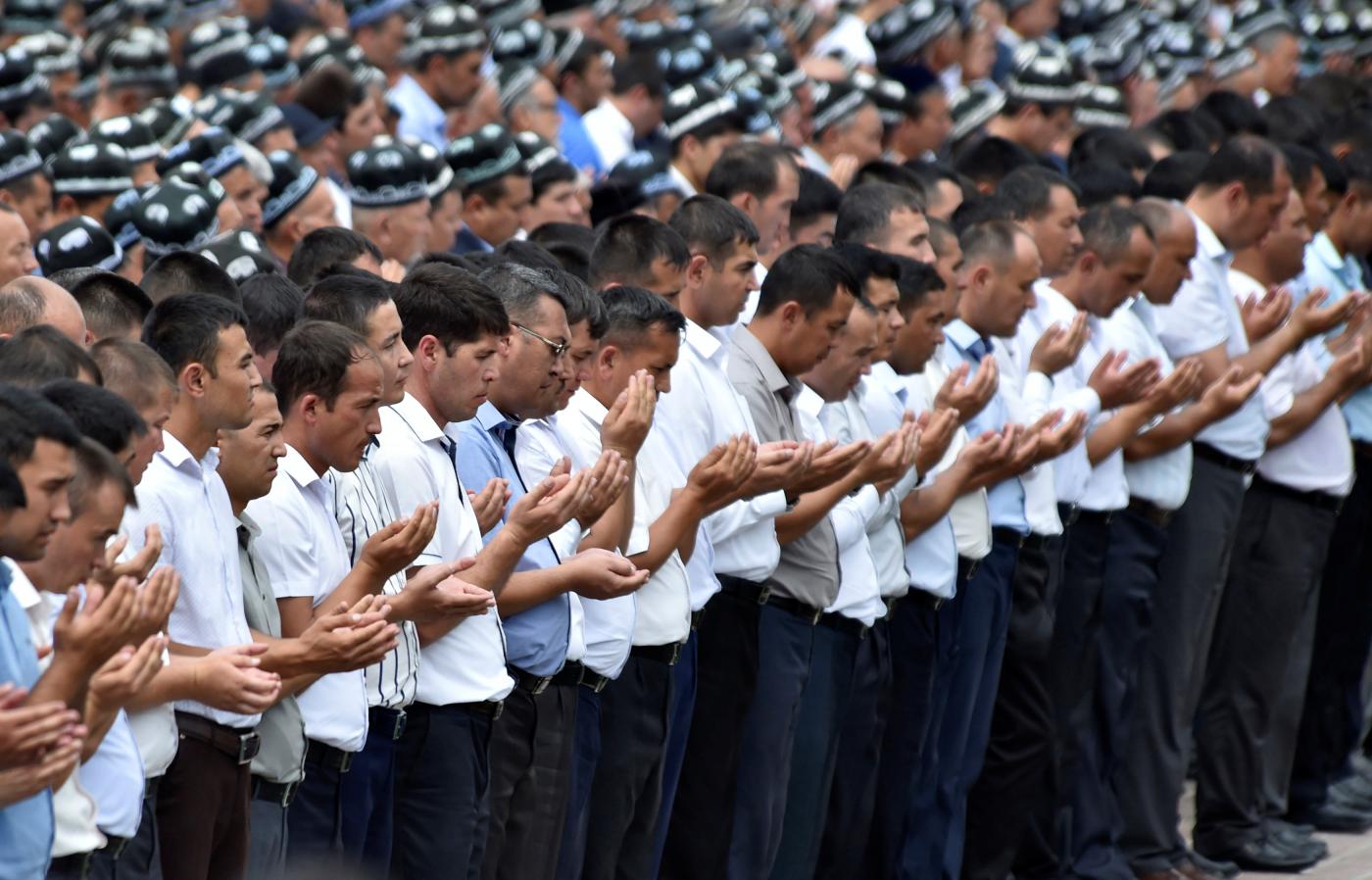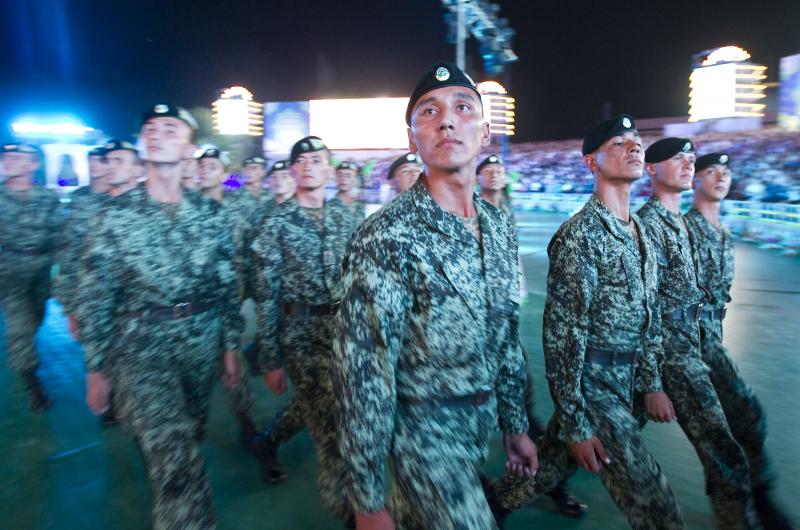PBS: Escaping Eritrea … [Read More...] about ካብ ውሽጢ ቤት ማእሰርታት ኤርትራ
Uzbekistan After Karimov – Its Grim Prospects
| Foreign Affairs

Update (September 8, 2016): On September 8, Uzbekistan’s parliament appointed Prime Minister Shavkat Mirziyaev interim head of state, replacing Nigmatilla Yuldashev, the chair of the parliament’s upper house. Mirziyaev will likely ascend to the presidency in the coming months after a tightly controlled national election. His speedy appointment broke a constitutional requirement that would have kept Yuldashev as interim head of state until a vote could be held. Mirziyaev, however, still is not the most powerful figure in Uzbekistan. That position belongs to Rustam Inoyatov, who heads the country’s main intelligence agency and who will oversee the transition to Mirziyaev’s presidency. It is possible that Inoyatov’s poor health and age—he is in his early seventies—prevented him from taking over as head of state. In any case, Inoyatov and Mirziyaev are political allies, and both men are former Karimov stalwarts: in the coming months, expect a great deal of continuity from the new regime. There will be losers in this new setup, particularly elites heading other security agencies, including the National Security Council, Ministry of Interior, and Ministry of Defense. They will be replaced by loyalists to decrease the interagency competition that was often present under Karimov’s rule.
UZBEKISTAN AFTER KARIMOV
Sometime in the days around August 28, Uzbek President Islam Karimov died after more than 25 years in power. His passing raised a number of questions, including whether a new leader will assume power with the open agreement of political elites. In the worst case scenario, the transition could trigger a revolt among rival officials, especially those heading Uzbekistan’s security agencies. In the best case, the longtime leader’s death will produce a government that is more open to the world and better at serving its citizens.
The prospects for positive change are slim. Most of today’s Uzbeks grew up under Karimov’s rule, and the country has not experienced a political transition since the collapse of the Soviet Union, when Karimov took power over the newly independent state. Uzbekistan does not have a tradition of competitive elections or open political debate; the elites who fill Karimov’s shoes will have little interest in changing that. The members of the opposition who live in exile, meanwhile, lack the political experience or resources they would need to effect change.

In many respects, today’s Uzbekistan is in the same condition as it was after the Soviet Union’s collapse. There are no independent media outlets, organized civil society is restricted, and access to information is highly controlled. Most of Karimov’s closest allies were members of the Communist Party of the Soviet Union or are the adult children of former party leaders. At the elite level, the closed, repressive structures of the Communist era have survived into the twenty-first century.
STAGE MANAGED
So far, the succession process has been carefully staged. The state tightly controlled the news of Karimov’s illness and death and went ahead with the celebrations of the 25th anniversary of Uzbekistan’s independence on September 1, mostly to preserve a veneer of normalcy. Following the succession process set out in Uzbekistan’s constitution, on September 2, Senate Chair Nigmatilla Yuldashev became interim head of state.
The real transition of power, however, will take place behind the scenes over the next few weeks as a handful of Uzbek elites compete for the presidency. Two men lead the roster of possible successors: Rustam Inoyatov, a former KGB operative who now heads of the National Security Service, Uzbekistan’s main intelligence agency, and Shavkat Mirziyaev, a former provincial governor who is the country’s prime minister. Among the other noteworthy contenders are Shukhrat Gulyamov, Inoyatov’s deputy at the NSS, who is known among his peers as “the hero of Andijan” for his role in the 2005 crackdown on protests in the town of Andijan that left hundreds dead, and Rustam Azimov, a clever young operator who now serves as finance minister.
Tashkent needs a new way to justify authoritarianism. Irredentist nationalism is one option.
A choreographed succession by any of these men will not lead to more political freedom in Uzbekistan. Central Asia offers several examples of states in which the heirs of dead dictators were cut from the same cloth as the predecessors who tapped them. In Azerbaijan and Turkmenistan, Ilham Aliyev and Gurbanguly Berdimuhamedow, both of whom came to power after the deaths of longtime authoritarians, took power during predictable and superficially peaceful succession processes. But in both cases, their new governments persecuted, jailed, or forced into exile scores of suspected opponents. To ensure that he is surrounded by loyalists, the next Uzbek president will likely embark on a purge of his own, targeting potential opponents among the elite and boosting the security apparatus to preempt political activism on the ground.
The new government will attempt to enshrine Karimov’s legacy for some time, but the cult of the dead leader will eventually be replaced by exaltations of his successor. Whereas Karimov could present himself as the founder of an independent post-Soviet Uzbekistan whose security and stability depended on his heavy hand, the leader who follows him won’t have an easy time legitimizing his rule. A quarter century after Uzbekistan’s independence, Tashkent needs a new way to justify authoritarianism. Irredentist nationalism is one option: Uzbekistan’s new leader could attempt to unify ethnic Uzbeks at home and in neighboring Kyrgyzstan, Tajikistan, and Kazakhstan to rally its citizens around the flag while boosting Tashkent’s regional influence. The country’s bureaucrats pose a similar problem. Their loyalty to Karimov held the country’s institutions together, and whoever takes over will have to corral their support.
OPPORTUNITIES SQUANDERED
Under Karimov’s leadership, the state jailed thousands of Uzbeks for their political or religious beliefs and for undertaking civic activism. Critics of the regime were arbitrarily tortured and killed in detention; perhaps most notoriously, in the early 2000s, reports emerged that two prisoners, Muzafar Avazov and Husnidin Alimov, had been boiled alive in a prison in the country’s northwest. (Even Karimov’s elder daughter, a former socialite and diplomat, disappeared from public view after falling out of favor with her father in 2014.) Religious Muslims, whom Karimov often lumped in with terrorist groups, bore the brunt of the abuse. Uzbekistan is also notorious for forcing children, women, and public-sector workers to pick cotton, one of the country’s main exports, at the end of the growing season, for little or no pay; exporting the crop without real labor costs allows state producers to reap big profits. Unable to rely on popular support, Karimov’s successor will likely continue these forms of repression.
Neither of the most powerful states in Uzbekistan’s neighborhood have much interest in a more liberal government in Tashkent. China and Russia do not hesitate to build economic and political ties with autocrats; both prefer a predictable, anti-Western leader. For the Kremlin, Karimov’s death may prove advantageous in this respect: he was an unpredictable partner who cooperated with Russia only when his relations with the West soured. As for China, Tashkent’s membership in the Shanghai Cooperation Organization helped secure Beijing access to Uzbekistan’s market and opened up the possibility of eventually incorporating the country into Beijing’s Belt and Road initiative. Karimov’s death has created an opening for both powers to reach out to Uzbekistan in their push for influence in Central Asia, but neither will be able to influence the succession process.
The outlook for Uzbekistan is grim.
Uzbekistan’s smaller neighbors, meanwhile, will watch the events of the next few weeks carefully. Nursultan Nazarbayev, who has ruled Kazakhstan since 1991, and Emomali Rakhmon, who has led Tajikistan since 1994, are aging and concerned with their own legacies. They will look to Tashkent’s management of the coming weeks for guidance.
As for economic policy, Uzbekistan will probably maintain its isolationism. Uzbek leaders fear that allowing market competition or foreign investment could create power centers beyond the state’s grasp, complicating the state’s control of the country’s entrepreneurial class. Those elites who inherit power in the coming weeks will be more concerned with securing and redistributing economic resources among themselves than with designing policies that encourage an open economy.
As such, they will be squandering Uzbekistan’s vast economic potential. With some 30 million residents, the country is the region’s largest market, offering transit routes to all the Central Asian countries and to Afghanistan. It is the world’s sixth largest producer and third largest exporter of cotton, and after Russia and Turkmenistan, it is the third largest producer of natural gas in the former Soviet Union, with proven reserves of 1.58 trillion cubic meters. It has a youthful population—more than one-third of Uzbeks are younger than 14—that under the right policies could produce a demographic dividend for the country’s economy. Meanwhile, around two million Uzbeks work in Russia, and thousands more work in Kazakhstan, the Middle East, the United States, and Europe—a sign of a large workforce that could unleash economic growth but is held back by a lack of opportunity at home.
In the near term, the outlook for Uzbekistan is grim. The country is deeply stratified, with a majority of Uzbeks living in poverty as a small group benefits from the country’s economic progress. The quality of public education has plummeted since 1993, when Karimov replaced the Uzbek language’s Cyrillic script with a Latin one, leading to a shortage of textbooks and qualified teachers. Combined with Tashkent’s propaganda machine, the result has been a lack of education and a surfeit of indoctrination. And thanks to a massive police force and the region’s largest army, any bottom-up action threatening the country’s rulers could be easily suppressed.
In the longer term, however, new power centers—led by political elites, armed groups, or criminal organizations—could develop and challenge Karimov’s successors. Islamist extremism offers one avenue for such a challenge: Karimov inflated the threat of radicalism to justify his iron-fisted rule, but it is nevertheless the case that, in the absence of political pluralism, religion offers a ready-made force that can unite disenfranchised groups against the ruling regime. And although coups and high-level political violence seem far-fetched for now, in a country with deep economic grievances and powerful, competitive elites, neither can be ruled out.
